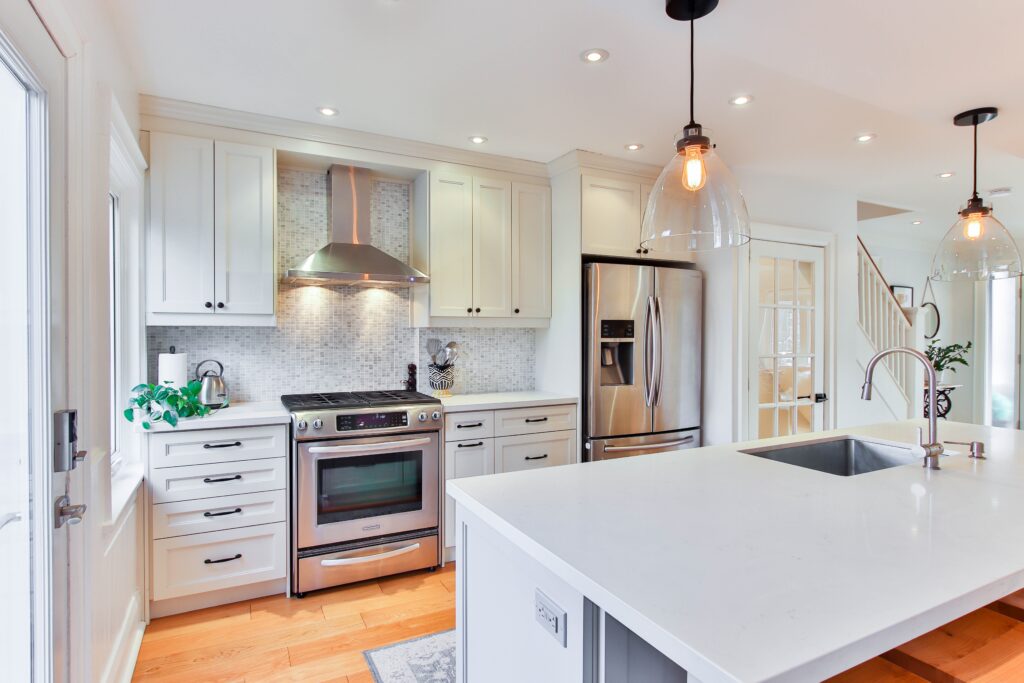Love Selling Your Home: Minimize Your Stress, Maximize Your Profit, is a step-by-step guide that covers everything you need to know to sell your home in today’s market, from finding a real estate agent all the way to settlement day.
You’re ready to sell your home, but how do you know if potential buyers will love it or not?
In real estate we call it the “sale-ability” factor of a home. This comes into play when you compare your home to others that have sold recently in your neighborhood and how you determine the price of your own home.
Before you list your home, you and your agent will consider some key factors when determining the price to ensure that you home is priced right to bring in buyers.
The condition and location of your home have the biggest impact on the listing price and expected time frame for selling. And if you’re a condo owner, you’ve got a whole other set of factors that can affect your unit’s sale-ability.
No one wants their home to sit on the market for weeks or months. It becomes a tainted home and this perception can snowball and scare away buyers who wonder, “What’s wrong with it?”
To avoid this scenario, carefully (and honestly) examine your home with your agent to see if it’s sellable in today’s market. And if its not, decide what you’ll need to do to make it more attractive to buyers.
Keep these key factors below in mind when its time to sell your home. Some you can control and change, some you can’t.
Condition

- A home that is not well-maintained or has outdated features is generally not appealing to many buyers today. They would rather pay for a more move-in-ready type of home. If most of the homes that sold recently in your neighborhood had updated kitchens and bathrooms and features yours does not, then your home is not on the same playing field when it comes to price. You’ll need to decide if you’re willing to sell “as is” and have the price reflect that.
- See if your home has any unique features that are a plus and can push the list price up when compared to others. If yours has a finished basement and most don’t, that’s a positive for your home. Do you have a large patio for outside entertaining? Did you install new windows throughout? Are there hidden hardwood floors under the wall-to-wall carpeting? Look for those positives!
- Some conditions go way beyond outdated features and lack of care. Homes can have more severe problems that need to be disclosed to potential buyers. Water in the basement, termites, radon, and foundational issues are all examples of disclosures buyers must be made aware of. You will need to disclose these conditions, consider fixing them, or drop the list price to reflect any repairs needed.
- Homes with awkward layouts- especially in kitchens, tend to turn buyers away. How about your backyard that’s basically a hill, or the twenty steps up to your front door? Homeowners who’ve lived in a home for a while tend to get used to certain “unique” features even they didn’t like when they first moved in. So look at your home with fresh eyes and accept the reality of its features or layout.
Location

- Most sellers know that location, location, location can be a selling point and will impact list price. Certain neighborhoods are hot and, on the flip side, certain neighborhoods are just not as desirable. What’s yours right now? I can give you an idea of the current housing market of your particular neighborhood.
- You can’t change the location of your home. The location becomes a bigger challenge if you live near certain things that are just not attractive to buyers. Are you too close to a school or a fire station? Do you live on a busy street or busy corner lot? Is your home near power lines? What about a commercial district that is more industrial than hip? Your price will need to reflect these challenges to get the buyers to view it.
- Look for some positives to your location. These can be a big plus for your home and can offset any negatives it may have with buyers.
- Do you live in a cul-de-sac or have an amazing view? What about a well-regarded school district? A park or running/bike trail nearby?
- Are any new developments or new buildings going up around the area? If so, your agent will consider any impact, it could have on your home. When will the construction end? Will there be more traffic? Will new stores and better amenities come into the neighborhood? All of these impact the time it takes to sell your home.
Timing
- The timing of your home’s listing can affect both the list price and length of time it takes your home to sell. Usually springtime is at the height of the selling season with lots of very interested buyers. However, that also means your home will face more competition from other listings. This is when you need to truly know how your home stands up to the competition around it.
- Although there is less competition from other listings around the holidays and in the winter, most buyers take a break from their home-buying search at this time. Typically, homes that are listed from Thanksgiving to New Year’s often sit longer and sell for less. Even the same house relisted during the spring market sells more quickly and for a higher price.
Condo Rules and Regulations

- If you live in a condo, then you’re dealing with a whole other set off issues when determining the “sale-ability” factor of your home. First and foremost is the financial health of your condo community. Does it have enough reserves or is it strapped for money? Lenders want to see at least 10% of the yearly budget going to a reserve account. If this is not the case, they simply will refuse a loan in the building even though YOU might be financially qualified for that price point.
- Other factors to consider: Have there been any special assessments recently? Is the association keeping up with repairs and maintenance? No one wants to get trapped with a condo association that is not well run. Remember, each buyer will review those very important condo documents to get the complete picture!
- One sign that a condo community is stable is that the owner occupancy rate is high, and units are not investor-owned or rented as much. Having a high owner-occupancy rate is one of the requirements for a condo community to be FHA-approved and meet Fannie Mae requirements.
- Another ratio that is often overlooked is whether one entity or person owns more than 10% of the units. Again, if this one tiny ratio is out of whack, the lenders will refuse to lend a buyer funds to buy any unit in your building. This lowers the pool of buyers that could buy your home, therefore reducing your price compared to the building next door.
Wondering if your home is sellable? Before you start spending time and money on any improvements, let me do a free walk-around to let you know what you need do to your home to sell it for the most money possible, but put the least amount of time and money into it.
I can even suggest some of the best and most reasonably priced contractors who can do any necessary work for you as well. Lets connect!
Hi there!
I'm Liz and I can't wait to help you to move up to you forever home. If you're not sure if you should keep your current home or sell it before the big move I can breakdown all the possibilities and make the transactions as smooth as possible.
Let's Meet
Contact
301-512-7203
8400 Germantown Ave, Suite 2
Philadelphia PA 19118
liz.cencula@foxroach.com
Whats your home worth?
Moving on Up
All Articles
schedule your free consultation